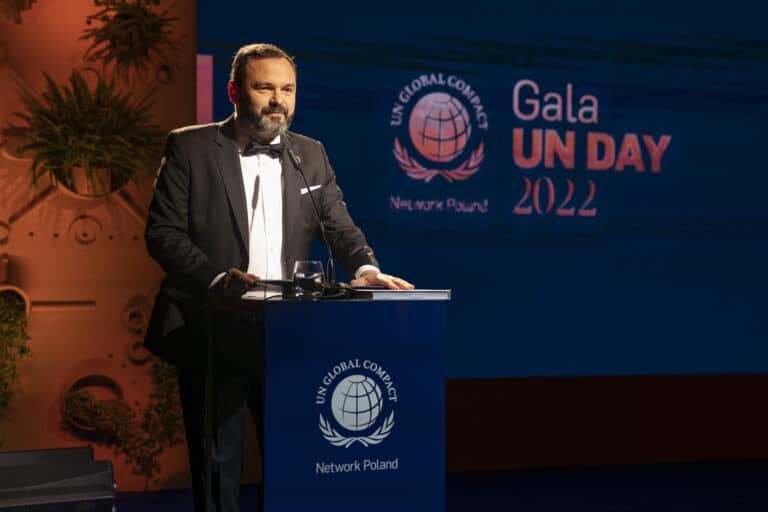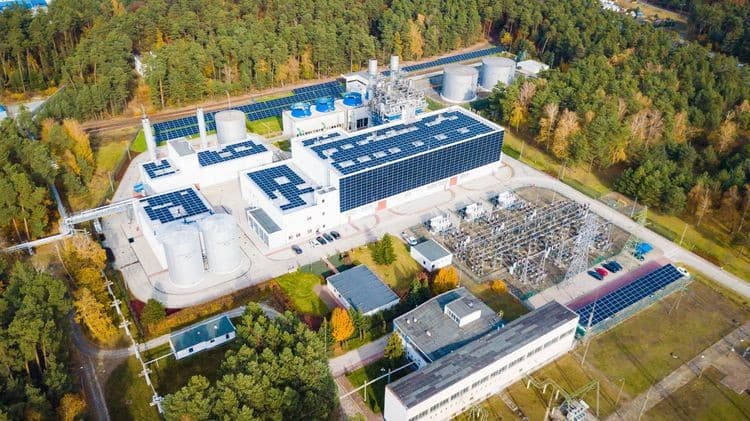A Remarkable Brain Gain for Poland
“Driving innovation, improving healthcare, and fostering global partnerships—these are the key takeaways from ‘The Impact of the Medical Biotechnology Sector on the Economy and Medical Advancements,’ a report published by BioInMed.”
Poland’s medical biotechnology sector is rapidly emerging as a vital force in addressing critical global health challenges. With innovative solutions in development, Polish companies are making strides in areas like precise medical diagnostics and groundbreaking therapies. These innovations not only promise to revolutionize treatments for previously incurable diseases but also aim to transform terminal illnesses into manageable chronic conditions, enabling patients to live fuller, more productive lives.
Polish firms are already conducting clinical trials for new therapies and drugs that will soon be available to patients, significantly contributing to healthcare advancements. Moreover, these innovations are expected to reduce healthcare costs by minimizing complications, side effects, hospitalizations, and the need for long-term care. In a world where approximately 7,000 rare diseases remain without effective treatment, the Polish biotech industry is stepping up to fill the gap, particularly in rare cancers. Experts predict future health crises, similar to the COVID-19 pandemic, driven by pathogens, highlighting the urgent need for innovative therapeutic and diagnostic technologies. Polish biotech is poised to play a critical role in meeting these unmet health needs and positioning the country as a global innovator.
The Economic Impact and Global Reach
Since their inception, Polish biotech companies have made significant contributions to the national economy. Data from BioInMed, a key organization in the sector, reveals that 11 member companies have collectively contributed an average of PLN 93.2 million in taxes. These firms continue to grow and attract international attention, with many expanding through clinical trials in various therapeutic areas and achieving remarkable results.
International collaboration is another cornerstone of the sector’s success. The first major global commercialization of Polish biotech occurred in 2009, when Ryvu Therapeutics (formerly part of Selvita) partnered with Finnish company Orion. Since then, partnerships with global giants like Merck and BioNTech have followed, along with significant deals such as Molecure’s (formerly OncoArendi) partnership with Galapagos, worth over PLN 100 million in initial payments. These alliances not only boost the credibility of Polish biotech but also open doors for future drug registrations and market expansion.
Acquisitions are also a growing trend. In 2020, Selvita made a landmark acquisition of Croatian company Fidelta, marking the first foreign acquisition by a Polish biotech firm. Companies such as Celon Pharma, Captor Therapeutics, and Pure Biologics are also listed on the Warsaw Stock Exchange, with the total market capitalization of Poland’s biotech sector exceeding PLN 7 billion. These companies are driving innovation and pushing the boundaries of medical science, developing “first-in-class” therapies that use novel mechanisms to treat specific diseases.
A Brain Gain for Poland
Poland’s biotech industry is not only making waves in research and innovation but also reversing the brain drain that had seen many talented scientists leave the country for better opportunities abroad. The sector now attracts top-tier talent, including biologists, chemists, physicists, and bioinformaticians, offering them meaningful career prospects at home. As a result, many Poles who previously emigrated to Western Europe or the United States are returning to contribute to Poland’s biotech revolution.
In addition to local talent, the industry is drawing highly skilled professionals from abroad. Several leading biotech companies, including Captor Therapeutics, Molecure, and Ryvu, now have international scientists and executives who left roles at global pharmaceutical giants (often referred to as “Big Pharma”) to join Poland’s thriving biotech landscape.
The Future of Polish Biotech
As the sector matures, Polish biotech companies are increasingly focusing on commercialization, international partnerships, and the development of innovative therapies. These companies are not just improving healthcare outcomes but also contributing to Poland’s global standing as a hub for high-tech medical innovation.
With its growing pipeline of innovative drugs, promising clinical trials, and international collaborations, Poland’s biotech industry is not only shaping the future of healthcare but also positioning the country as a major player in the global biotechnology arena. As more groundbreaking therapies move from the lab to the clinic, Polish companies are set to transform the way the world approaches healthcare, ensuring better outcomes for patients while strengthening Poland’s economic and scientific influence.







